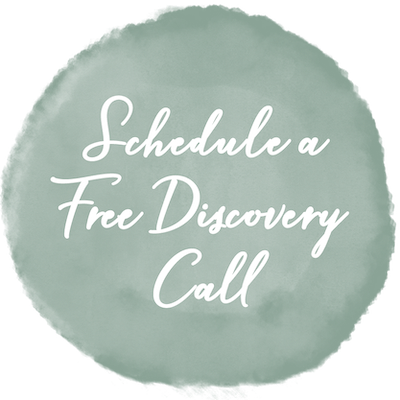There are few things on the recovery journey that can feel as devastating and confusing as a relapse. The feeling of being pulled back under after you’ve fought so hard to find the surface can bring on such a wave of shame, hopelessness, and fear. I remember this feeling well from my own journey, and it’s something I see clients wrestle with - the crushing belief that all of their progress has been lost and that they’re back where they started.
If you are in that place right now, my heart is with you. Try to take a slow, deep breath, and I want to offer you a gentler way to look at this. That a relapse does not mean you have failed. It does not erase all the hard work you’ve done, and it most certainly is not the end of your story. It’s a painful, difficult, yet surprisingly common part of the very non-linear journey that recovery truly is.
You Are Not Alone With This
Something I think is so important to know is just how common slips, lapses, and relapses are in eating disorder recovery. It can feel so isolating, like you’re the only one who couldn’t make it stick, but the research shows something very different. This isn’t to discourage us, but to do the opposite—to normalize it.
Recovery is (unfortunately, or not?) not a straight line from ill to well. It’s a winding path, with progress, plateaus, and sometimes, detours that take us back to familiar, painful places. Seeing that so many others have faced this same detour and still found their way to lasting recovery can hopefully take away some of the shame and hopelessness that you might be feeling. You are not a failure; you are a human being navigating an incredibly complex healing process.
Reframing a Relapse: A Detour, Not a Dead End
When we’re in it, a relapse can feel like we're at a dead end, facing a cliff. But what if we could see it instead as an unexpected and unwanted detour on a long road trip? It’s frustrating, it’s scary, and it takes us off our planned route, but the destination hasn’t disappeared. The road to recovery is still there, waiting for you to find your way back to it. And the road that the detour is on, well, it is still part of the same road system.
I often encourage clients to see a relapse not as a failure, but as information. Our eating disorders are such deeply ingrained coping mechanisms. A relapse is often a sign that we’ve encountered a stressor, a life change, or an internal pain that our healthy self didn’t yet have the tools to handle. And so, an old, familiar tool was reached for.
Instead of meeting this with shame and criticism, what if we could meet it with curiosity? The eating disorder is grasping at reasons to feel safe and in control. By looking at what triggered the relapse, we can learn so much about what parts of our healthy self and our recovery still need strengthening. It’s a painful lesson for sure, but it is a lesson, and it can pave the way for an even more resilient recovery ahead.
Tips for Finding Your Way Back
Getting back on track after a relapse can feel overwhelming, but it doesn’t have to happen all at once. It happens one small, gentle step at a time. Here are a few things that I have found, both personally and with clients, to be so helpful.
Reach Out Immediately. Shame thrives in secrecy. The most powerful first step you can take is to do the opposite. Reach out to your therapist, your dietitian, your coach, or a trusted loved one. Say it out loud. Bringing it into the light immediately lessens its power and reminds you that you don’t have to navigate this alone.
Find Self-Compassion. Your inner critic is likely going to be at its loudest right now. This is the time to intentionally practice self-compassion. Place a hand on your heart and repeat a phrase like, “This is a moment of suffering. This is so hard. May I be kind to myself.” Remember, you are hurting. Meeting this hurt with kindness is what allows for healing. If you want to explore self-compassion even more, the work of Kristin Neff and Tara Brach helped me so much in my recovery.
Go Back to the Basics. Try not to expect yourself to jump right back to where you were a week ago. That can feel too daunting. Go back to the foundational tools that helped you in the beginning. Was it following a meal plan? Was it journaling after every meal? Was it scheduling your sessions closer together? Focus on the very next meal, the very next decision. One step at a time.
Reconnect with Your ‘Why’. It can be easy to lose sight of why you wanted recovery in the first place when you’re in the thick of a relapse. Take some time to journal or reflect on what a recovered life means to you. Reminding yourself of the beautiful, full life you are fighting for can be the fuel you need to get back on the path.
Final Words
A relapse is a part of your story, but it is not the end. It’s a chapter that is painful, but one that can lead to deeper understanding, greater resilience, and a more compassionate relationship with yourself. You have done this before, and you can absolutely do it again.
With so much compassion and unwavering hope for your journey,

Support For Your Journey
If you feel you could use more support on your eating disorder recovery journey I would love to connect with you. Contact me to book a free video discovery call so that we can explore if working together would be a good fit. I would love to hear from you.











